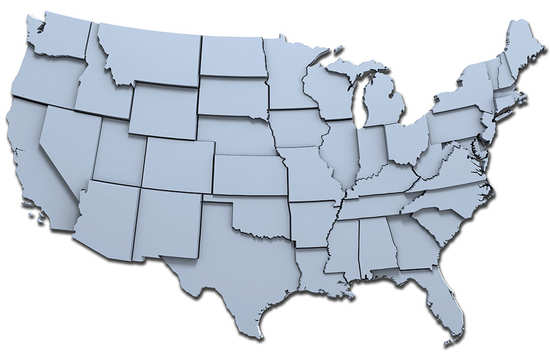
We often think that having a home in multiple states is a great idea, and sometimes we contemplate working while traveling between these homes. In some cases, our jobs take us to multiple locations. What happens when we work in multiple states throughout the year?
It is important to determine if you are considered domiciled in a particular state. If so, you will be subject to that state’s income tax rules and regulations. We tend to think of domicile as where we spend the most amount of our time, however, each state has different rules regarding the terms and conditions of what is considered a domicile. Your domicile typically is where you have a “true, fixed, and permanent home”. Your domicile will not change provided you have a home that you consider the place “to which you intend to return whenever absent”. Your domicile can be different from your residence. Your residence is based upon how much time you spend in a state. These definitions of time that qualify you to be a resident, and therefore subject to taxation, differ from state to state. Check the regulations for your state, but keep in mind that most states include days spent in the state as a determining factor. Some states also require an abode or overnight as a determining factor. Even if you rent the home out while you are not there, it could still be considered an abode when it comes to the state determinations. It is recommended that you thoroughly document your use of a second home and/or business. Most states will default to resident status, and it is up to you to provide the facts and evidence that you were not qualified for state taxation.
Many states also tax you on your worldwide income if you qualify for a domicile or resident status. Additionally, if you work in another state, you will most likely need to pay taxes on the income derived from that state. Some states separate the income and tax only their state’s income, while others calculate tax on all income as if you were a resident and then allocate the tax based on in-state sources/all sources. You may also have to file in another state if you are an S-Corporation shareholder and the business operates in another state, you are a partner in an out-of-state partnership, you own rental property in another state, or you are the beneficiary of a trust in another state. These are factors that create a nonresident return filing in another state. These rules apply even if the partnership is held in an investment account.
Regardless of whether you are a part-year resident or a nonresident in the state where you are working or residing, you will probably need to complete an apportionment statement for the income. This is generally found in each state’s tax return forms. Part-year residents usually not only pay taxes on income earned from work performed in the state, but also pay tax on all other income received while a resident of the state. A nonresident will generally only pay taxes on income they earned while performing work in the state, and on income received from other sources within the state. After you determine your apportionment allocations, you will need to calculate what percentage of your total income is applicable to the state. This is the apportionment percentage and is used in the additional calculations of the taxation. Apportionment can be done in one of two ways, depending on the requirements of the state. Some states require you to calculate your taxes as if you were a resident for the entire year. Once you have calculated a full year’s worth of income for the state, you then apply the apportionment percentage to this tax to determine what you owe in that state. The other method is to prorate your itemized deductions and other allowable deductions and credits using the apportionment percentage, so that the taxes you pay to the state are based solely on this prorated amount.
If you are a nonresident, you will still need to use the apportionment allocation form to determine how much tax you will owe in each state. You will also pay tax on all of your income for the entire year to your resident state. To many people this sounds like double taxation, and it is, although most states allow you a credit on your resident return for the taxes paid to another nonresident state. Under the law of each state, tax credits are only available with respect to the income taxes that are properly due to another state. When two states can claim you as a domiciliary, neither state believes that taxes are properly due to the other. You will need to prove that you are abandoning one domicile for another to avoid taxation in both states. Be cautious in nonresident filings, as the nonresident states may carry a higher taxation rate than your resident state, or your resident state may cap the amount of credit you can apply. If you have enough deductions in your resident state that don’t qualify for your nonresident or part-year state, you may end up not being able to reduce the income being taxed. If this is the case, you won't have enough resident state taxes to use the full credit from the nonresident state, and you can't carry over the excess nonresident taxes to use as a credit in a later year. This may mean that you will end up paying more taxes in the long run.
Calculating multi-state qualifications and taxation is complex. It is best to seek the advice of a tax professional prior to engaging in activities in another state. Be sure you fully understand the rules and regulations of each state you intend to reside, do business with, or invest in, as it is critical to avoiding unnecessary taxation.
